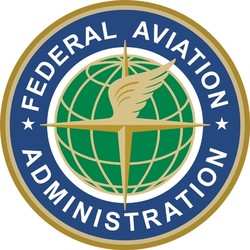Sat, Aug 24, 2013
Will Allow OSHA To Enforce Standards Not Covered By FAA
The FAA, working with the U.S. Department of Labor’s Occupational Safety and Health Administration (OSHA), has issued a final policy for improving workplace safety for aircraft cabin crewmembers.

While the FAA's aviation safety regulations take precedence, OSHA will be able to enforce certain occupational safety and health standards currently not covered by FAA oversight. “Safety is our number one priority – for both the traveling public and the dedicated men and women who work in the transportation industry,” said U.S. Transportation Secretary Anthony Foxx. “It’s important that cabin crewmembers on our nation’s airlines benefit from OSHA protections, including information about potential on-the-job hazards and other measures to keep them healthy and safe.”
“This policy shows the strength of agencies working together and will enhance the safety of cabin crewmembers and passengers alike,” said Secretary of Labor Thomas Perez. “It is imperative that cabin crewmembers have the same level of safety assurances they provide the public.”
Aircraft cabin safety issues that fall under OSHA standards include information on hazardous chemicals, exposure to blood-borne pathogens, and hearing conservation programs, as well as rules on record-keeping and access to employee exposure and medical records. The FAA and OSHA will develop procedures to ensure that OSHA does not apply any requirements that could adversely affect aviation safety. "Our cabin crewmembers contribute to the safe operation of every flight each day,” said FAA Administrator Michael Huerta. “We’re taking an important step toward establishing procedures for resolving cabin crew workplace health and safety concerns.”

“We look forward to working with the FAA and through our alliance with the aviation industry and labor organizations to improve the safety of cabin crewmembers,” said Dr. David Michaels, assistant secretary of labor for occupational safety and health.
Through the FAA Modernization and Reform Act of 2012, Congress required the FAA to develop a policy statement to outline the circumstances in which OSHA requirements could apply to crewmembers while they are working onboard aircraft.
The policy will be effective 30 days after publication in the Federal Register. OSHA will conduct outreach and then begin enforcement activities after the first six months from the effective date.
More News
“This recognition was evident during the TBMOPA Annual Convention, where owners and operators clearly expressed their satisfaction with our focus on customer service, and enc>[...]
Overhead Maneuver A series of predetermined maneuvers prescribed for aircraft (often in formation) for entry into the visual flight rules (VFR) traffic pattern and to proceed to a >[...]
Aero Linx: Glenn H. Curtiss Museum The Glenn H. Curtiss Museum, bearing the name of Hammondsport’s favorite son, is located on State Route 54, one half mile south of the vill>[...]
The Flight Instructor Noticed Some Engine Roughness And Diverted Toward Westwinds Airport On November 2, 2025, about 1630 mountain standard time, an experimental amateur-built Just>[...]
From 2014 (YouTube Edition) -- Disclaimer: No Matter What He Tells You, Tom Is Not A Certified Firefighting Pilot While at EAA AirVenture 2014, ANN News Editor, Tom Patton checked >[...]
 Aero-News: Quote of the Day (11.20.25)
Aero-News: Quote of the Day (11.20.25) ANN's Daily Aero-Term (11.20.25): Overhead Maneuver
ANN's Daily Aero-Term (11.20.25): Overhead Maneuver ANN's Daily Aero-Linx (11.20.25)
ANN's Daily Aero-Linx (11.20.25) NTSB Prelim: Just Highlander
NTSB Prelim: Just Highlander Classic Aero-TV: Just Like The 'Real' Thing Redbird/Disneys Dusty FlightSim
Classic Aero-TV: Just Like The 'Real' Thing Redbird/Disneys Dusty FlightSim




